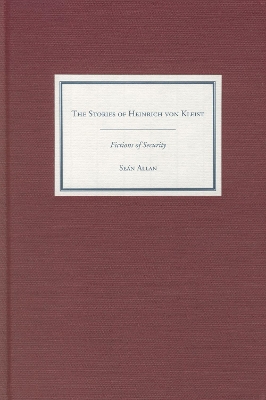The fascinating and controversial German writer of dramas and novellas Heinrich von Kleist (1777-1811) is one of the most interesting objects of analysis for scholars of German literature even today, nearly two centuries after hisdeath by suicide. In recent years, disagreements among Kleist scholars have been so extreme that some have suggested that his work subverts the very process of interpretation. Sean Allan challenges this view and the related one of Kleist as a profound pessimist. He argues that the focus on Kleist's uninterpretability has obscured important elements of social criticism present in his 'moral stories.' To correct the widely-held view of Kleist as a 'poet without a society,' Allan approaches the stories via investigation of four thematic clusters: justice and revenge; revolution and social change; education and the nature of evil; and art and religion. Allan holds that the perspectiveendorsed by the Kleistian narrator is designed to reflect the assumptions and prejudices of the members of the dominant class of Kleist's time (authoritarian and male-dominated as it was), and finds that by the end of the storiesit is precisely this perspective that has been profoundly called into question.
Sean Allan is lecturer in German at the University of Warwick, UK.
- ISBN10 1571132279
- ISBN13 9781571132277
- Publish Date 1 July 2001
- Publish Status Active
- Publish Country US
- Publisher Boydell & Brewer Ltd
- Imprint Camden House Inc
- Format Hardcover
- Pages 255
- Language English
